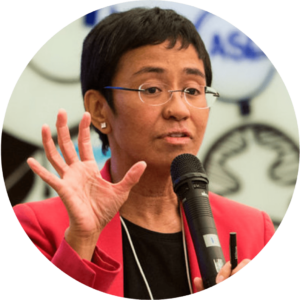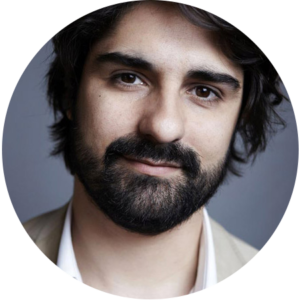Video
Article by Forbidden Stories
February 22, 2021 1:57 pm
Starting on February 22, 30 organizations - including 22 media - shared “The Forbidden Stories of Rappler," a series of five videos about journalist Maria Ressa and the investigations of Rappler.com – stories that the Philippine authorities want to silence.
Recently nominated for the Nobel Prize, journalist Maria Ressa has been released on bail 10 times in less than 2 years. Her crime? Pursuing stories that challenge the Philippine authorities.
From February 22 to 26, 30 news organizations and advocacy groups shared the five-part series, which focuses on the legal cases against Maria Ressa and Rappler‘s investigations into corruption, human rights abuses and other topics.

The video series was produced with the support of the Pulitzer Center. With the hashtag #AmplifyRappler, the videos aim to give a worldwide echo to the investigations that the Philippine authorities want to silence.
By sharing these videos massively around the world, #AmplifyRappler sends a powerful message to President Duterte: Rappler and Maria Ressa are not alone. We support them and we will continue to amplify the investigations that are challenging the Philippine authorities.
I think that journalists should come together. The most effective way to deal with both attacks on social media and the kind of draconian policies that are coming now to prevent journalists from doing their jobs is to fight it together (Maria Ressa)
Chapter 1: THE WAR
The first episode follows Rappler’s coverage of President Rodrigo Duterte’s “war on drugs,” which has killed more than 30,000 people, and how Rappler journalists tirelessly sought to contradict the government’s crime statistics.
Chapter 2: THE PRESIDENT
The second episode dives deeper into Rappler’s coverage of President Duterte and the investigation that got Maria Ressa and journalist Pia Ranada banned from the presidential palace.
Chapter 3: THE MONEY
The third episode looks at Rappler’s reporting on financial crime and corruption, including their investigations into the man who is suing Maria for cyber libel, Wilfredo Keng.
Chapter 4: THE TRUTH
The fourth episode, investigates how journalists at Rappler became the story themselves – as the target of a massive disinformation campaign led by the government with the aim of discrediting their reporting.
Chapter 5: THE VIRUS
The final episode is about an ongoing story: the Philippine government’s insufficient response to the Covid pandemic and how Rappler journalists got to the heart of the crisis, despite restrictions on movement.
They support us

Maria Ressa
2021 Nobel Peace Prize
“All they want in killing a journalist, or in attacking a journalist, is to stop the story.”

Can Dündar
Former editor of the Turkish newspaper Cumhuriyet
“It will send a very clear message to oppressive governments that if they touch a journalist anywhere in the world, many others will be ready to support and follow up their story.”

Khadija Ismayilova
Azerbajani investigative journalist
“What you are suggesting is creating a newsroom for journalists who have no press freedom. You will get fantastic stories.“

Matthew Caruana Galizia
Maltese journalist, son of slain reporter Daphne Caruana Galizia
“We couldn’t allow our mother’s stories to die with her. They were too important. For them to be forgotten would have been like killing her twice.“

Fabrice Arfi
Mediapart‘s head of investigations
“The finest project of investigative journalism, in solidarity against censorship.“

Sandhya Ravishankar
Indian journalist
“Now I know that Forbidden Stories will always have my back.”

Bastian Obermayer
2017 Pulitzer Prize winner
“Even if Forbidden Stories rescues just a handful of investigations that fall into a sort of limbo each time a journalist is jailed or killed, it will already be a great victory for citizens.”

Marina Walker
Executive editor at Pulitzer Center
“By working together, journalists can make it harder for censorship to win. We’re proud to support Forbidden Stories.”


